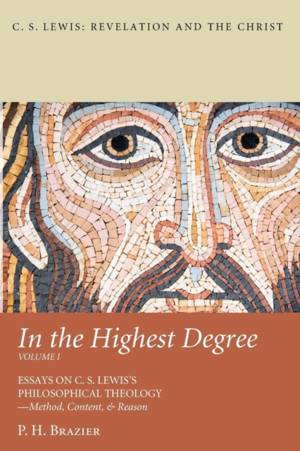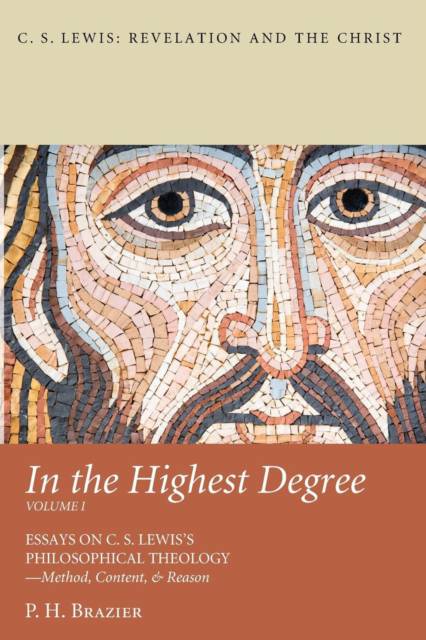
- Afhalen na 1 uur in een winkel met voorraad
- Gratis thuislevering in België vanaf € 30
- Ruim aanbod met 7 miljoen producten
- Afhalen na 1 uur in een winkel met voorraad
- Gratis thuislevering in België vanaf € 30
- Ruim aanbod met 7 miljoen producten
Zoeken
Omschrijving
The theological and philosophical works of C. S. Lewis were grounded in the argument from reason. As such reason is a form of revelation that predates nature and relates to the divine: the Word of God, Christ the Logos. These essays provide some understanding of the essentials to Lewis's philosophical theology, that is, the essentia, "in the highest degree." Lewis's corpus can seem disparate, but here we find unity in his aims, objectives, and methodology, a consistency that demonstrates the deep roots of his philosophical theology in Scripture, in Greek philosophy, patristic and medieval theology, and in some of the Reformers, all framed by a reasoned discipline from a perceptive and critical mind: method and form; content and reason--for the glory of God. Here is the essentia of Lewis's thinking. From an analysis of reason, through a theoretically unified proposition for atonement, to the evidence of Christ as the light of the world across human endeavors and religions, to a doctrine of election, to an understanding of Scripture, to "the Philosophy of the Incarnation" (as Lewis termed it, ) through fundamental arguments with various modern/liberal theologians, we find evidence for the actuality of the incarnation: the divinity of Christ.
Specificaties
Betrokkenen
- Auteur(s):
- Uitgeverij:
Inhoud
- Aantal bladzijden:
- 262
- Taal:
- Engels
- Reeks:
Eigenschappen
- Productcode (EAN):
- 9781532651915
- Verschijningsdatum:
- 31/10/2018
- Uitvoering:
- Paperback
- Formaat:
- Trade paperback (VS)
- Afmetingen:
- 152 mm x 229 mm
- Gewicht:
- 353 g

Alleen bij Standaard Boekhandel
+ 69 punten op je klantenkaart van Standaard Boekhandel
Beoordelingen
We publiceren alleen reviews die voldoen aan de voorwaarden voor reviews. Bekijk onze voorwaarden voor reviews.











